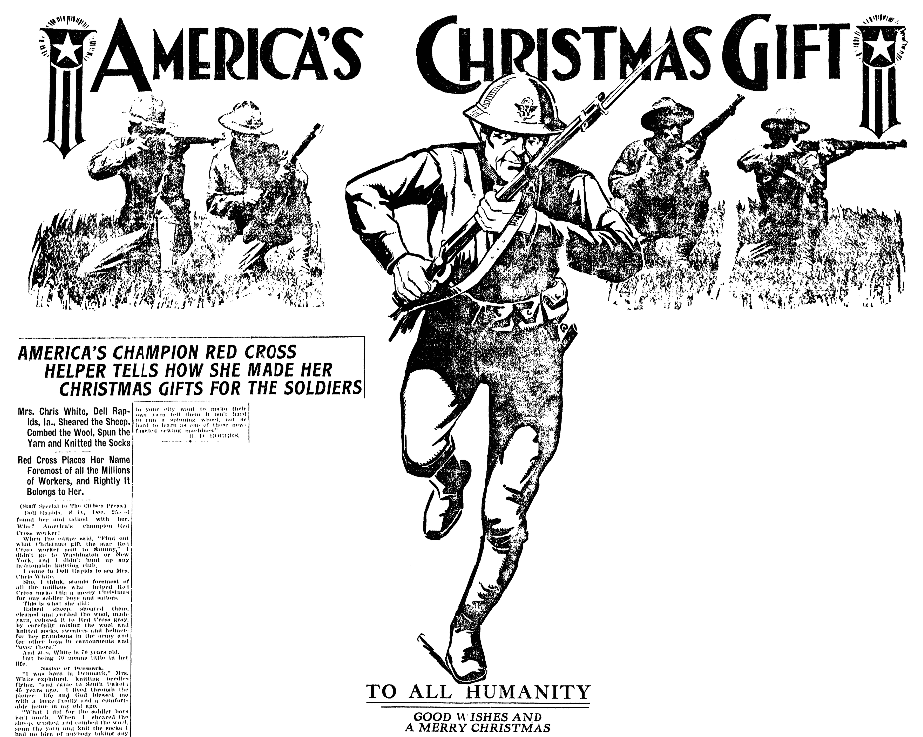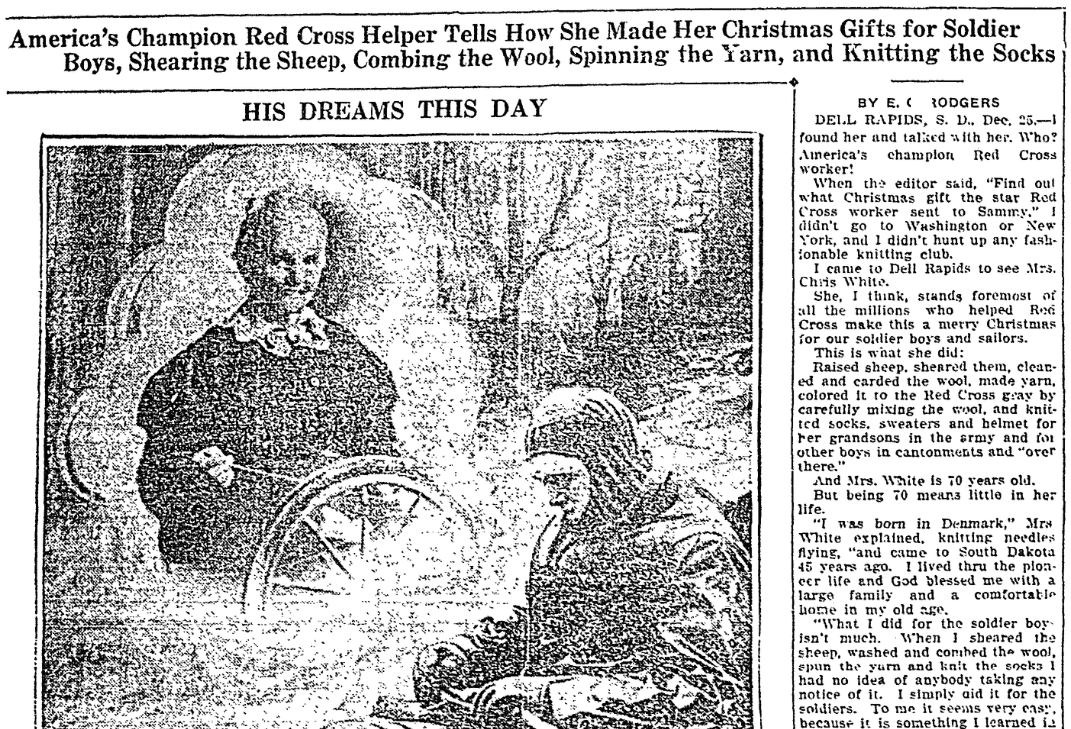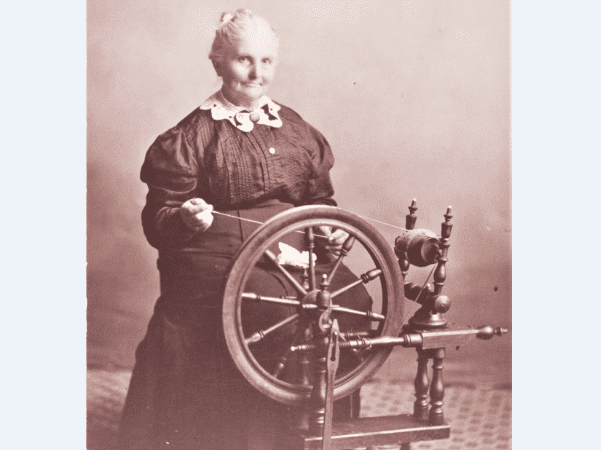Introduction: In this article, Melissa Davenport Berry tells how all of America – and especially Anna White – gave WWI soldiers a wonderful Christmas gift in 1917: warm, knitted woolens Melissa is a genealogist who has a website, americana-archives.com, and a Facebook group, New England Family Genealogy and History.
Everyone knitted to do their bit for the soldiers in World War I. The U.S. formed a Wool Brigade and many men, women, and children took up the needle. The schools had knitting bees, public parks hosted knit-a-thons, and charities held fundraisers for yarn and supplies. In 1917 the American Red Cross called for all things Khaki that Christmas Season. The knitting started and thousands of soldiers were cheered by cozy comfort packages.

That year, reporter E. C. Rodger’s editor assigned him a story to “Find out what Christmas gift the star Red Cross worker sent to Sammy.” The “star” Red Cross worker was Mrs. Chris “Anna” White.
Note: The volunteer American troops of the AEF (Regular Army & National Guard) DID in fact accept the term “Sammies” as a moniker for “Uncle Sam’s Boys.” This distinguished those who served in the trenches long before the draft troops of the U.S. National Army had even arrived. (From “The Word Detective Blog,” 2009)
Rodgers looked into the story, and told four million, one-hundred thousand readers:
“I didn’t go to Washington or New York, and I didn’t hunt up any fashionable knitting club. I came to Dell Rapids [South Dakota] to see Mrs. Chris White. She, I think, stands foremost of all the millions who helped Red Cross make this a merry Christmas for our soldier boys and sailors.”

Mrs. Chris “Anna” White, “America’s Champion Red Cross Helper,” made headlines. Her contribution to keeping Uncle Sam’s boys warm on the front created a buzz! The 70-year-old patriotic pioneer’s message to America: “Learn to Spin!” to serve in the war effort.
Anna knitted sweaters, helmets, socks, and scarfs from the wool of her own sheep, which she sheared, carded, and spun by her own hands. According to Rodgers, Anna sent all her work to the Minneapolis Red Cross Headquarters.
Anna was a wise and thrifty lady – no one could pull the wool over her eyes. She told Rodgers:
“Up here, you know, we women can’t run to the store every time we need a little yarn. And they charge too much for the yarn, much more than they ought to, considering what they pay us for the wool.”
She learned her trade in Denmark where her family raised sheep and made her living by knitting. She came to prairie land in the U.S. and took up the sheep trade. She sheared the local farmers’ sheep and boasted “I have done as many as thirty-five in a day.”
Anna had grandsons fighting in France and wanted them to be snug and warm, and knew that some of the other boys did not have grandmothers to make them sweaters.
Anna told Rodgers:
“Now that the children are married and scattered, I have plenty of time to spin and knit, and I want to help keep the boys warm. I want to do my little share for Uncle Sam who has done so much for me and mine.”
Anna made many men merry that Christmas!
Explore over 330 years of newspapers and historical records in GenealogyBank. Discover your family story! Start a 7-Day Free Trial
Genealogy:
Ane Marie “Anna” Sorensen (1868-1953), born in Demark to Niels Christen Sorensen and Karen “Carn” Jensdatter. Married to Hendrick Jensen (1824-1896), then to Christian J. White (1846-1927).
Sources:
- “America’s Christmas Gift: America’s Champion Red Cross Helper Tells How She Made Her Christmas Gifts,” Jackson Citizen Patriot, Tuesday, 25 December 1917, Jackson, Michigan, page 1.
- “America’s Champion Red Cross Helper Tells How She Made Her Christmas Gifts for Soldier Boys,” Miami District Daily News, Monday, 24 December 1917, Miami, Oklahoma, Vol: XIII, Issue: 88, page 1.
- “Red Cross Khaki Christmas Planned but You Must Hurry,” San Jose Mercury News, Sunday, 9 December 1917, San Jose, California, Vol: XCIII, Issue: 162, page 34.
- Peasance, Chris. “Knit Your Bit! Fascinating Photos Show America’s ‘Wool Brigade’ Getting behind the War Effort by Making Socks and Clothes for Soldiers in the Trenches,” Daily Mail (UK), 2 August 2017.
